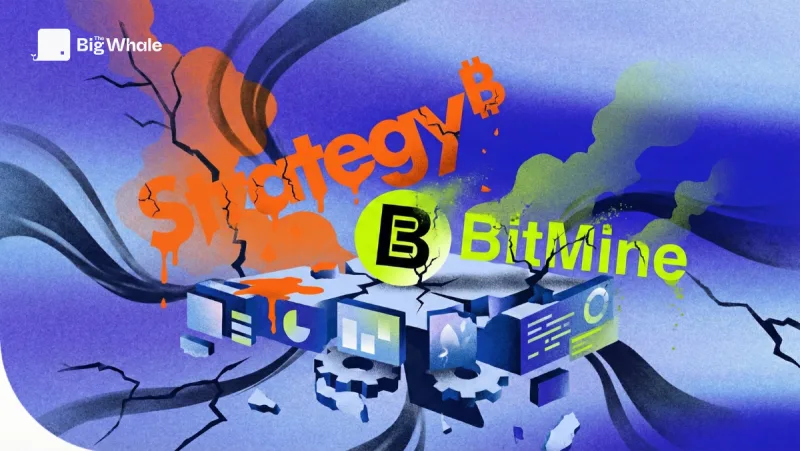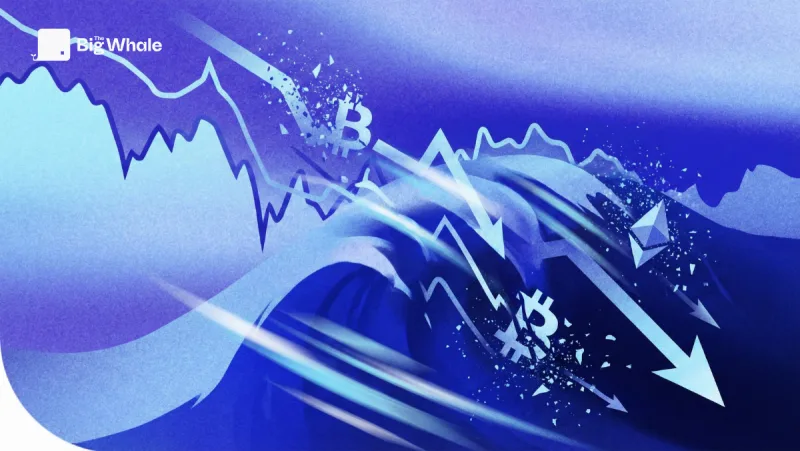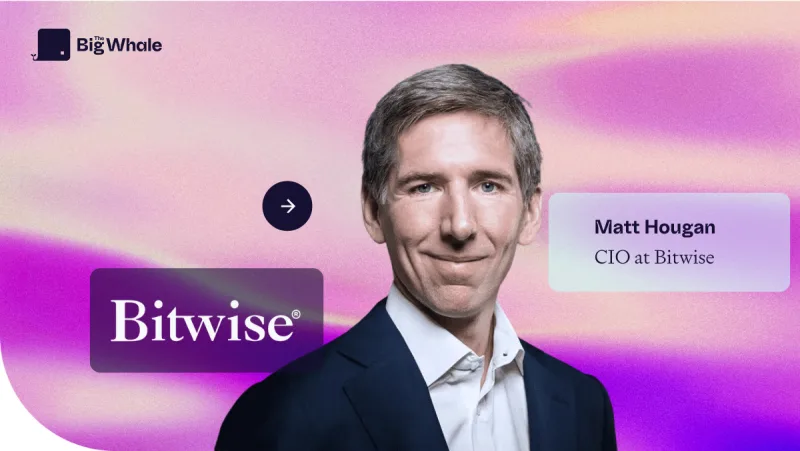TBW - Gerry Afentakis (Zodia Custody): "Asset custody is the cornerstone of digital finance"
"Asset custody is the cornerstone of digital finance"

The Big Whale: For those unfamiliar with Zodia Custody, could you introduce your business?
Zodia Custody was established in 2020 by Standard Chartered Bank. We specialize in digital asset custody. This focused expertise is our core strength.
This specialization stands out in the sector. Why choose this path when competitors are diversifying?
In the crypto universe, unlike traditional finance, platforms often play a dual role: they are both exchange platforms and asset custodians.
This hybrid model is problematic for the traditional financial sector. The collapse of FTX demonstrated this: counterparty risk is unacceptable for traditional institutions.
This observation guided Standard Chartered's strategy: asset custody had to be the fundamental foundation of any crypto infrastructure.
This approach applies to the entire ecosystem: tokenization, stablecoins, cryptocurrencies, or tokenized traditional assets - custody remains the central element.
That's why they created two separate entities: Zodia Custody for custody, wallets, and security, and Zodia Markets for trading and execution.
These two companies, although incubated by Standard Chartered, now operate autonomously, with the bank as a strategic shareholder.
What connections remain today between Zodia Custody, Standard Chartered, and Zodia Markets?
Our shareholding has expanded considerably: alongside Standard Chartered, we now have Northern Trust, Emirates NBD Bank, National Australia Bank, SBI Holdings, and other institutional investors. We are no longer just a Standard Chartered subsidiary.
What unites our shareholders is their shared vision: asset custody is the cornerstone of digital finance.
In practical terms, we provide the technological infrastructure that enables Standard Chartered to offer custody services in the United Arab Emirates and Luxembourg (where we are awaiting our MiCA license). Emirates NBD Bank also uses our white-label technology for its Live Bank service.
As for Zodia Markets, it's a complementary entity: an OTC trading platform specializing in stablecoins, on/off-ramping operations, and emerging currencies.
Our clients can access their services through our interface while maintaining the freedom to choose other providers if they wish.
So you allow your clients to do more than just custody?
Our clients want to "put their assets to work" through staking, trading, and other activities, so we allow them to do this via an interface. But we're not the ones operating these services.
We prefer to be the best at custody and integrate the best partners for everything else. This is our Zodia Gateway platform, a kind of integrated App Store where clients can choose the services they want, offered by our partners.
Today, how many people work at Zodia Custody? What are your typical clients and main challenges?
We have our headquarters in London and a global presence in Luxembourg, where we've submitted our MiCA license application, as well as in the United Arab Emirates, Hong Kong, Singapore, Japan, and Australia.
Today, we're about 150 people, and we're growing rapidly. Our ambition is to become the world's leading digital asset custodian.
Would it make sense to also custody fiat currencies?
Some have asked us about this, but we only handle digital assets. Our value proposition is based on a clear premise: creating a Tier 1 custodian aligned with traditional financial institutions' standards.
Who are your clients? How many do you have?
We have several hundred clients. It's a mix of traditional and crypto-native clients. Financial institutions entering the digital market quickly identify us as a natural partner because they know Standard Chartered.
On the crypto business side, it's more complex because they often already have their own custody solution. But this is where our ecosystem comes in: our services, our shareholder network, our Store: Zodia Gateway.
And on the tech side? Did you develop everything in-house, do you have partners?
Our stack is primarily based on HSM (hardware security modules like Ledger), with a proprietary foundation, combining internally developed components and third-party elements (like Ripple Metaco, historically).
We're evolving our architecture to integrate multiple providers. The goal is simple: stay at the forefront of security, compliance, and execution speed.
How many blockchains do you support for protecting digital assets?
We're integrated with about twenty blockchains. And of course, when we talk about ERC-20 or other tokens on Ethereum or Solana, it goes well beyond that.
On the business side, is custody a market of price or security in your view?
Both aspects are inseparable. Our clients demand optimal security while remaining cost-conscious. At Zodia, we strive to excel on both fronts.
Our unique market position allows us to prioritize sustainable growth rather than a frenzied race for profitability. Unlike some players who need to justify astronomical valuations, we build lasting relationships with our clients.
And regarding competition, with major banks arriving (Citi, BNP Paribas, JP Morgan, BPCE...), what impact does this have on Zodia?
Naturally, large financial institutions will favor their historical partners. However, the market will remain diverse with:
- crypto-native players preferring to remain independent from traditional banks,
- banking institutions reluctant to collaborate with certain crypto players.
The ecosystem will therefore organize around a plural model with self-custody, crypto intermediaries, and banking groups and specialists like us. There won't be a monopoly in this sector.
On the geopolitical front: is Europe maintaining its lead thanks to MiCA? Or will the United States take back control?
MiCA represents a major regulatory innovation: a harmonized European framework that attracts investors. Although it can be improved, it's a solid foundation for the future.
In the United States, recent political developments, particularly under Trump's influence, are reshuffling the cards. When the world's largest economy seriously accelerates on crypto and stablecoins, it legitimizes the entire sector.
This dynamic encourages even the most conservative players — particularly in wealth management — to open up to these innovations. We're seeing growing interest: many come to learn about and understand the market, beyond just the transactional aspect.
What is Zodia Custody's priority for Europe by the end of 2025?
Our main objective is to obtain our MiCA license in Luxembourg. In parallel, we're continuously enriching our Zodia Gateway ecosystem to offer an increasingly complete range of services.
We're seeing more and more businesses in crypto. Has crypto become a B2B market?
Currently, the market is clearly B2B-oriented. But we shouldn't forget our roots.
In the long term, we anticipate a more balanced configuration with a robust institutional pole, a solid base of individual users, and growing synergy between traditional and decentralized finance.
However, B2C expansion still requires significant advances in security, regulation, and education.



